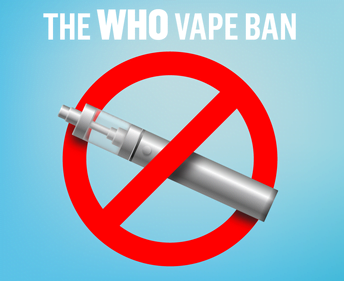In an open letter sent to the delegates of the FCTC ((WHO Framework Convention on Tobacco Control), one hundred specialists demand the World Health Organisation to change its hostile position on Tobacco Harm Reduction.
The message to the upcoming Ninth Session of the Conference of the Parties describes the benefits of Harm Reduction and the risks posed by the bans that are still in place in many nations worldwide. The statement aims to reach the Heads of Delegation participating in the Conference to encourage the World Health Organization to promote the inclusion of Harm Reduction under the Framework Convention on Tobacco Control.
At the core of the message by the experts are the technological innovations the sector has been through in the last decade, and the innovation introduced by the combustion-free products, including the e-cigarettes.
While smoking is responsible for most of the deaths from tobacco use, scientific data results continue to endorse the less risk for health by non-combustible products: “there is irrefutable evidence – the letter reads – that smokeless products are much less harmful than conventional cigarettes and that they can eliminate smoking individually and collectively.”
However, WHO continues to ignore the importance of alternative products to conventional cigarettes and turns its back on public health strategies that could prevent the millions of smoking-related deaths worldwide every year.
The letter stressed the importance of electronic cigarettes as the main tool to help smokers to quit citing the studies that support this instance. “Electronic cigarettes – say the experts – helps in the smoking cessation and could contribute to the objectives of reducing premature deaths.”
“There is irrefutable evidence that smokeless products are much less harmful than conventional cigarettes and that they can eliminate smoking individually and collectively.”
Among the recommendations by the experts:
-Adopt the policy of Tobacco Harm Reduction as a component of global health strategies for achieving the goal set globally ;
-Evaluate the benefits for smokers, including adolescents, and consequently the risks for those who cannot access them;
-Consider the unwanted consequences of ban policies around the world, such as the increase in smokers;
-Begin independent reviews not performed within the WHO and FCTC.
Experts conclude that the time has come for global tobacco policy to harness the full potential of Tobacco Harm Reduction and hope that science, policy and communities of public health professionals converge on a common goal to achieve: reduce the global burden of tobacco-related diseases and premature mortality as quickly as possible.





